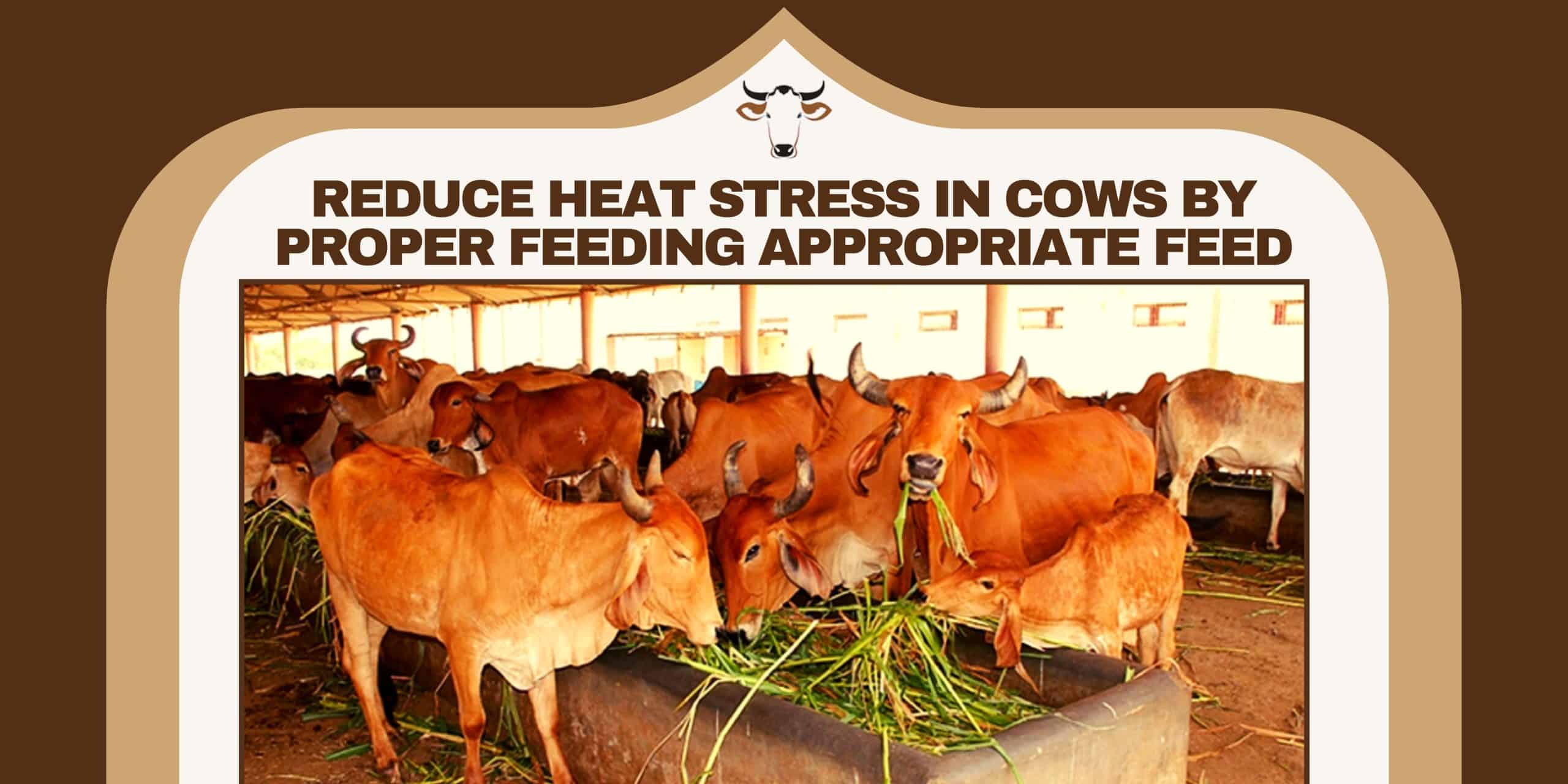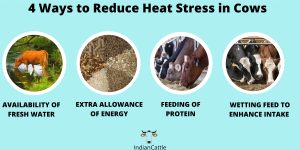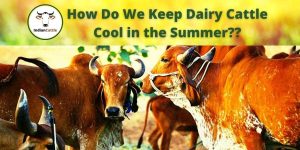
Reduce Heat Stress in Cows by Proper Feeding Appropriate Feed
How to reduce heat stress in cows?
During summer requirement for energy is increased hence special attention should be paid to the feed formulation and feeding management. Following are some ways to Reduce Heat Stress in Cows by Proper Feeding Appropriate Feed :

Availability of Fresh Water
Cows and buffaloes are very sensitive to water temperature. In summer if water is warm, its intake goes down. It is the single most important factor to ensure that animals get clean and cool water. It can be done by covering the water troughs with shade or insulating material. Many farmers have tried even adding ice to drinking water, if other actions are not possible, and have reported good results. Using insulated water troughs could also be tried. To increase water intake, it should be made the accessible entire day and additional salt may be supplemented in the feed.
Extra Allowance of Energy
During summer animals spend more body energy maintaining the body heat, which is the main cause of the reduction in milk yield during the hot summer season. The hot season directly affected dry matter intake hence this adds to the energy-related problem. One way to increase the energy density of feed is to give an extra allowance of concentrate mixture, but this has other ill-effects, most important rumen acidosis and high cost. The thumb rule is that concentrate feeding should not exceed 55-60% of the total dry matter intake else it will depress milk fat content, cows to go off feed, laminitis, and reduce the efficiency of nutrient use. Added dietary fat is an excellent way to increase the energy content of the diet, especially during summer when feed intake is depressed. When fat is added it also increases milk fat. Please make sure that the dietary fat content should not exceed 5 to 6 percent of the total diet dry matter. Oilseeds such as whole cottonseed and whole soybeans are excellent sources of fat and protein. Tallows are also good fat sources. Rumen “bypass” fats are inert in the rumen and are recommended when a cow is giving a high milk yield. One rule of thumb when high-fat addition is required is that one-third should come from natural feed ingredients, one-third from oilseeds or tallows, and one-third from rumen bypass fats. The amount of bypass supplementation would depend on milk production level in the range of 50-100 g per day.
Feeding of Protein
It is desirable to increase the protein density of feed to compensate for reduced dry matter intake. For this instead of ensuring the percent of protein in feed check net protein intake in kg. It is wise not to increase overall protein by more than 17% as protein digestion itself is energy expensive. Instead, for high-yielding cows, the farmers should consider bypassing or rumen inert protein which is not degraded in the rumen. It is essential to maintain the correct degradable and bypass protein ratio.
A correct ratio is 70% rumen degradable and 30% rumen bypass. Several bypass protein supplements are available on the market.
Wetting Feed to Enhance Intake
During summer, feed intake is less hence to increase palatability, it is desirable to wet-dry feed. Since fiber digestion generates more heat compared to concentrate when chopped forages are mixed with concentrate cows have a tendency to sort leading to more intake of concentrate. Sorting can be avoided by flowing several steps such as proper mixing, using wet ingredients, and adding water to dry diets during mixing to improve intake and reduce sorting.
The above strategies work excellent provided the animals have access to a shaded area and protection from direct solar heat.
Read More: Animal Management in Summer
Dr. Abdul Samad
M.V.Sc., Ph.D.
Herd Medicine Consultant

